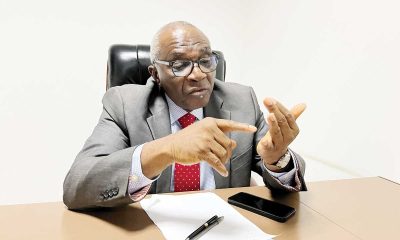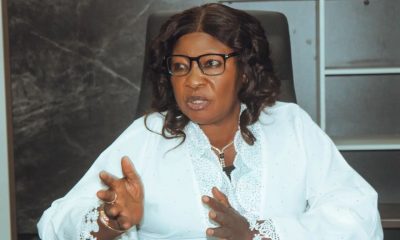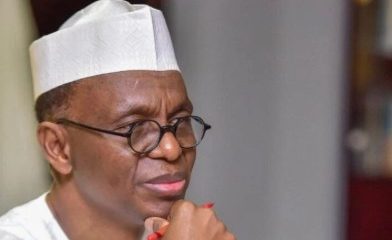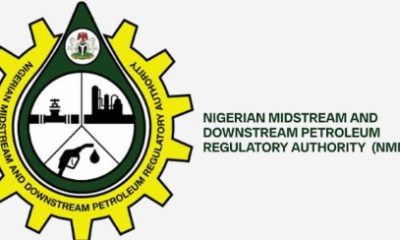Former Vice President and 2023 Presidential Candidate for the Peoples Democratic Party (PDP), Atiku Abubakar, has sharply criticized President Bola Ahmed Tinubu’s economic policies, claiming they have plunged Nigeria into financial crisis.
In a recent statement, Atiku contrasted his comprehensive Recovery Plan with what he described as Tinubu’s “erratic, trial-and-error” economic management.
Atiku expressed concern over the Tinubu administration’s hasty and untested policies, arguing that Nigeria’s current economic troubles stem from a lack of preparation and strategic vision.
“Like many Nigerians, I believe we are in this turmoil because the Tinubu administration rushed into power without a coherent plan,” he stated.
While acknowledging the ongoing public discussions about his proposed economic alternatives, Atiku pointed to the administration’s recent responses, which included a national prayer led by the First Lady and the National Security Adviser.
“Isn’t it interesting how the so-called ‘tested’ Tinubu administration’s only policy response seems to be a national prayer… just 24 hours after I offered my alternative solutions?” he quipped.
Although he recognized the value of prayer, Atiku emphasized the need for diligent work to achieve real results, citing scriptures that advocate for both faith and action.
In contrast, Atiku highlighted his Recovery Plan, a detailed economic strategy developed with significant input from Nigerians to ensure inclusivity and relevance. His plan aims to stimulate critical sectors, reduce unemployment, and attract foreign investment.
“My team not only created a comprehensive Recovery Plan but also incorporated substantial feedback from Nigerians, ensuring our approach is well-informed and inclusive,” he explained, asserting that it would create a sustainable economic pathway focused on growth and stability.
Recalling Nigeria’s economic successes during previous PDP administrations, Atiku noted that from 1999 to 2003, when he served as Vice President under President Olusegun Obasanjo, Nigeria experienced an average growth rate of 6.59%, peaking at 15% in 2002.
He contrasted this with Tinubu’s administration, which he claims has seen an “abysmal” growth rate of 2.8%, arguing that this disparity highlights the urgency of the current economic crisis.
“The average GDP growth under the Obasanjo administration was 6.59% and peaked at 15% in 2002; it was 7.98% under Yar’Adua and 4.8% under Jonathan, compared to the dismal 2.8% of the so-called ‘tested’ Tinubu era,” Atiku said.
He called for an end to what he termed “shambolic ‘bolekaja’ economic policy prescriptions” and rejected the administration’s reliance on tax increases as a solution to Nigeria’s economic problems.
ALSO READ : BREAKING NEWS : Tinubu swears in seven new ministers
Advocating for an alternative economic approach, Atiku pointed to countries like the United Arab Emirates, Qatar, and Monaco, which have fostered economic growth through lower taxation. “Why are we focused on imposing more hardship on an already struggling populace?” he questioned, asserting that Nigeria cannot “tax its way out of the economic quagmire created by these misguided experimental policies.”
In closing, Atiku reminded the public of the controversial outcome of the 2023 presidential election, reiterating his belief that he did not lose but that the process was “criminally stolen from the Nigerian people.”
He emphasized that the current situation is a direct result of what he sees as a compromised electoral process.
Atiku’s statement highlights his conviction that Nigeria’s economy requires experienced leadership grounded in proven methods rather than experimentation.
He argues that his Recovery Plan provides a clear path forward, a message he hopes resonates with Nigerians as they face ongoing challenges. His unwavering belief in the necessity of experienced stewardship underscores his commitment to the nation’s economic recovery.
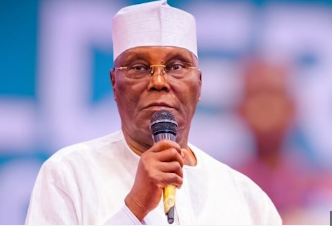

 Entertainment5 days ago
Entertainment5 days ago
 Health1 week ago
Health1 week ago
 Health4 days ago
Health4 days ago
 Football1 week ago
Football1 week ago
 Football1 week ago
Football1 week ago
 Crime4 days ago
Crime4 days ago
 Crime1 week ago
Crime1 week ago
 Education6 days ago
Education6 days ago



